A meeting with Alain Guyard. Alain supports companies as part of the transformation of their Finance function, whether it is redesigning their ERP or the setting up and optimization of their organization.
Alain Guyard, can you tell us what were the decisive turning points that marked the exercise of the CFO function in recent years and since the arrival ERP in the 80s?
AG : To simplify to a few major references, we could say that in the 1990s, it was the process of acquiring classic ERP to be effective, of course, but especially for self- measurement and evaluation of their performance. In the 2000s, work started on business intelligence, to be able to analyze to go forward. Beyond the observation, these results were useful for a more forward-looking logic. Around 2010, the desire to optimize the functional part emerges. The goal was to improve productivity by setting up, for instance, P to P or Order-to-Cash tools in order to work on volumes and efficiency.
What now, after the Covid-19 situation?
AG : Currently, the challenges are associated with digitization of all the functions of the finance department. And the stakes are clearly centered in the process of transforming the finance function. We will get help on notions of either robotization by simulating basic accounting behaviors or simulations related to the exploitation of big data. To summarize this evolution, one can say that we have gone from measuring to the outward projection. In any event, what is important, is to be able to adapt to different contexts. And sometimes even the most unexpected. The health crisis of Covid-19 will amplify this pre-existing trend.
Can we draw the salient lines after 2020?
AG : : In my opinion, we must consider the post-Covid period as an unavoidable acceleration of the capacity to react. During decades, the past illuminated the present. On the strength of this, one projected a future one could imagine. Today, if one projects a five-year plan for instance, the exercise becomes very complicated in an uncertain environment correlated with the occurrence of violent crises. In this logic, what becomes of the notion of budget in a context where from now on a total stoppage of operations for a company can arise? Difficult to construct a landing for the post-2020.
V, W, L, U or K; we do not know what shape the curve of the recovery will take. But can we already consider the changes that will impose themselves on CFOs in the next few months by terms of risk management in a crisis?
AG : Insofar as all the impacts are not yet quantified, this does not simplify the task. One cannot say if a strong and rapid recovery will follow a sudden stop. Businesses have less cash flow and experience difficulties in projecting themselves. Questions arise. If you are a manufacturer, do you have an interest in continuing production with long supply chains, for instance? Anyway, all of this will have an incidence as issues have been brought to the forefront because of the crisis. The too great dependence on everything coming from outside Europe in particular. The too long supplies lead times are major facts. This will change
things and quite a few models. That of the tight flow for instance. Look at the construction industry and the impossibility of being delivered what has been ordered. Ditto for distribution and stock breaks on shelves. This general blockage of the world economy will have major repercussions.
On stockmarket investments too?
AG : Questions arise about the investments of companies and individual shareholders. The small shareholder who saw shareholding from the simple angle of compensation is wondering. Will he continue to invest? Nobody knows. A structure endowed with large cash reserves will be able to hold on when everything is at a standstill and not remunerate the shareholder, at least for some time. But for those who get into debt and who cannot make a profit, this is less obvious. We know that when the growth is there, debt feeds the evolution, but if it is not no longer possible to pay the interest... These days the risk has increased. We had lost sight of it a little and we are rediscovering that businesses are fragile. Nature is not a controllable given. One of the criteria for the investor could be to target companies that will be less impacted by structural expenses if activity were to stop.
This unstable side of the business environment where black swans phenomena, including health issues, may be less and less the exceptions, could this lead to changes in the organization of work?
AG : It can be a serious catalyst. A ground swell is already operating in the United States where more and more, the model of the service provider and the freelancer gains ground with every passing day. And it will grow larger. It makes sense to ask what interest will the company have in bearing costs for infrastructure, social costs, workspaces, food services for people who will be less and less adaptable for a lifetime in their position. The goal of the right person at the right time is not new, but it does appear as perfectly topical. In any case, job mobility will speed up.
About the sense of belonging to a company, to its culture, does the arrival of new generations upset the paradigm?
AG : It is clear the new generations feel a lot less tied to the companies that employ them. Many of these young people saw their parents find themselves out of work after years of dedication and loyal service. They can legitimately ask "all this for that?". And to wonder if so much personal investment was indeed worth it.
We have seen the massive use of remote work...
AG : The health context required it for the protection of people and the limitation of the pandemic. However, on the the long run, getting everyone on distance work is difficult. Remote management is a delicate exercise. It even supposes to have a different skillset. If on paper, dividing the area of one’s offices by three may be attractive, it is necessary to watch the effects of loss of reference points and identity as well as the consequences of an inadequate management. Some employees have adapted very well to distance work, to the point that going back to the office was no longer so easy. For others, it has been less obvious. Inappropriate family and physical backgrounds, feelings of isolation, loss of collective spirit and the sense of belonging in the company. To be effective, distance work must be supervised, well and well assumed. We can also envision that in the future, the company becomes a place of meetings and exchanges. A place to meet, set goals and launch missions to be carried out through remote work… A moment also when the binder of the collective spirit and of belonging is created.
What do you think about the risk for demoralization?
AG : Personally, I strongly believe in the quality of personal integration. A person should feel good about their professional world. This is achieved through understanding the objectives, by receiving rewards, by the possibility of expressing one’s satisfaction. The conviction also to work not only for a wage but also for the collective interest. A young person, seduced by a project, can work like a maniac on the topic.
Young people today seem to have high expectations for the company, sometimes even associating to it a responsibility about their own personal happiness. Isn't that a bit of a stretch?
AG : For me, new hires could reimpose a model or even update it. In the 19th century, companies were very close to their employees. Birth gifts, reserved housing, education, medical care… This paternalistic scheme still found resonances until the beginning of the 1970s. Then, on the eve of the following decade, the companies disengaged themselves. Multiple mass layoffs, violent stock market swings; the shareholder appeared to be in a more privileged spot than the employee. Today, we are witnessing a return of this need for attention, consideration and esteem. A generous management can be one of the pillars of success confronted to our new environments.
In summary, even though the question is very broad, can you pinpoint the areas of challenge that await businesses in the future?
AG : The challenge will lie in the ability to maintain agility in the future. In this context, adaptation will be key, more decisive than ever. Whatever the solutions companies may adopt, success will belong to those which will know how to make their costs variable. It will also gravitate to those who did take advantage of digitization to be more productive and above all proactive. Finally, for companies in the position to offer systems in which employees feel recognized and have the feeling of bringing their energy to modern structures equipped with cutting-edge information tools, these will be able to adapt to all contexts.
Interview by J. Lascaux,
FiveForty° Founding Partner





